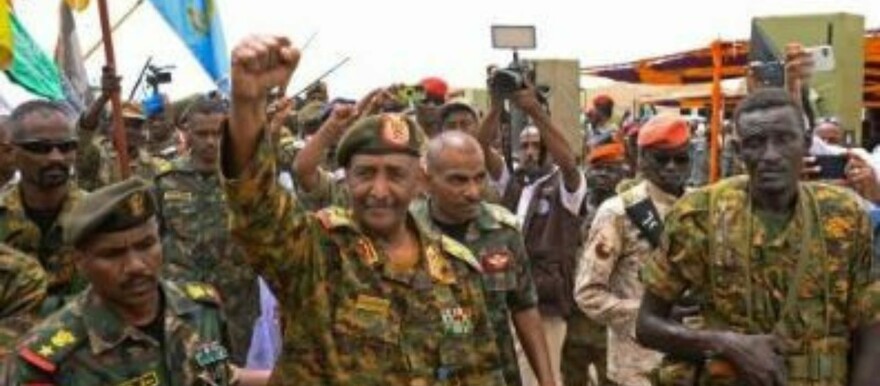General Abdel Fattah Al-Burhan, the Commander of the Sudan Armed Forces (SAF) and Chairman of Sudan’s Transitional Sovereign Council on Thursday repeated his promise not to ceasefire and or dialogue until until the Rapid Support Forces (RSF), which he described as rebels, are eliminated.
Sudan’s de facto leader who made the remarks while addressing soldiers and mobilized men in River Nile State in North Sudan, emphasized the need to continue fighting until the army reaches the furthest westerly town of El-Geneina in Darfur which borders Chad.
“If we do not eradicate these forces, we will not put down our rifles. We will not negotiate or talk about signing a peace agreement with them, nor ceasefire,” he stressed. “Either we finish off this group or they flee and leave the country.”
Al-Burhan thanked all his soldiers, their commanders, and the Sudanese people who responded to the call of the nation and fought alongside the army and described them as true Sudanese.
Saudi Arabia’s Foreign Minister recently held talks with both Al-Burhan and his nemesis, RSF leader Gen. Mohammed Hamdan Dagalo, to pave the way for the upcoming round of negotiations which were scheduled for the first week of May in Jeddah, Saudi Arabia, but have now been postponed to a later date.
Earlier in the week, South Sudan President Salva Kiir’s security advisor, Tut Gatluak, announced the commitment of the SAF to the Jeddah Peace Talks during the visit of Gen. Shams al-Din Kabashi, Al-Burhan’s deputy in the SAF to Juba.
A Sudanese political analyst, Hatim Ayoub, believes that Al-Burhan’s speech to his soldiers was an impulsive reaction and does not reflect the true strategic direction of the army.
“Al-Burhan’s speech is an attempt to absorb the anger of the soldiers and boost their morale following the battle of Al-Obied city in which a large number of SAF soldiers were killed,” he explained. “The speech was emotional and cannot be taken as the general direction of the SAF. The discussion should focus on how to resolve, and stop the Sudanese war, and talk about laying the groundwork at all local, national, regional, and international levels.”




